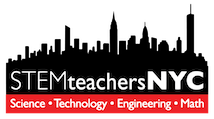The January 2025 meeting of the New Teacher Working Group centered on refining teaching strategies, assessment practices, and classroom management techniques. A member shared insights from their recent student-led experiment project, where students designed chemical reaction experiments. While they initially struggled with the concepts, they ultimately took pride in their work. She also reflected on her podcast project about elements, highlighting challenges with group dynamics and absenteeism. The group discussed strategies for improving student engagement and ensuring fair participation in collaborative work.
The working group also dove into conversations about assessment and grading policies. One member explained their approach to grading by assigning individual scores based on each student’s contributions rather than a blanket group grade. They also emphasized the importance of self-reflection in group projects, encouraging students to evaluate their own performance. To improve the structure of her projects, this teacher tightened deadlines and incorporated formative assessments with feedback before final submissions. They also shared her experience revising rubrics by integrating clear learning targets while running both the old and new versions in parallel for a smoother transition.
The discussion then shifted to mastery learning and test corrections. The group reinforced the idea that assessments should be tools for learning, not just measures of performance. Members recounted challenges with parents who were skeptical of test corrections, but found that calmly explaining the purpose of these revisions helped address their concerns. The group agreed that creating a fair and transparent assessment process fosters greater trust between teachers, students, and parents.
Members also discussed recent challenges with classroom management and maintaining a productive learning environment. Teachers are experiencing challenges such as excessive phone use and disruptive conduct, prompting a discussion on possible solutions. A member suggested having students deposit their phones at the start of class to minimize distractions. Working group leaders encouraged teachers to set up a purposeful meeting with a colleague to discuss teaching techniques and classroom management. The group also touched on mentorship opportunities, and the group discussed a summer workshop for teachers and a mentorship program for new educators. Additionally, they exchanged resources, including recommendations for chemical disposal solutions and a platform for sharing surplus lab materials. The meeting underscored the importance of collaboration, resourcefulness, and ongoing professional development for new teachers navigating their early years in the classroom.
Note: summaries are written with aid of AI text software

